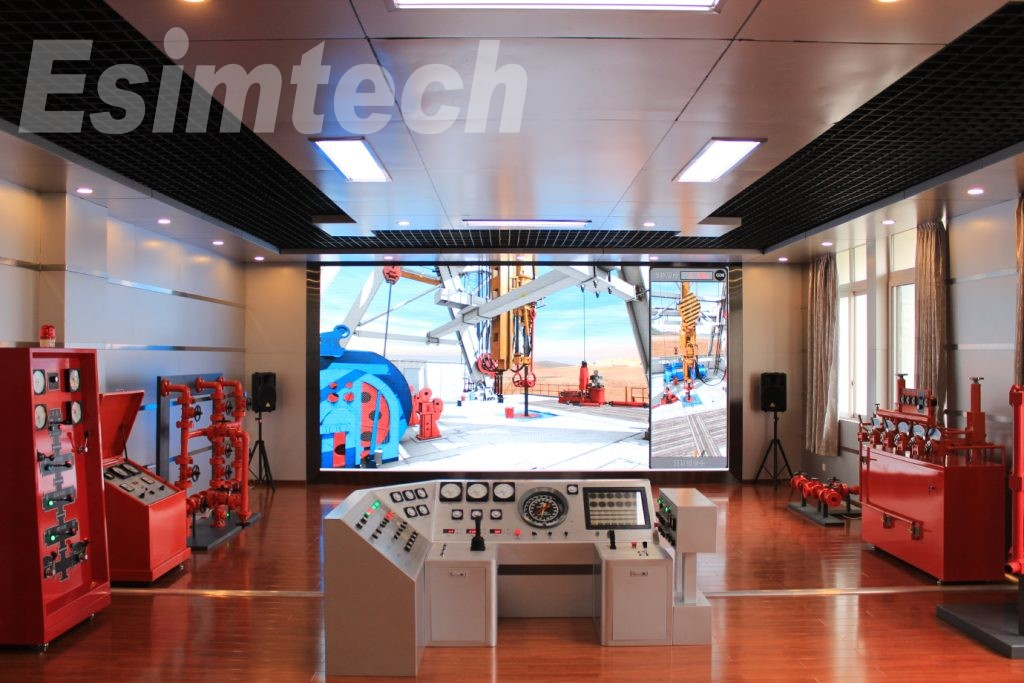Drilling and Well Control Simulator & Training System: Improving Safety and Efficiency in the Oil and Gas Industry
Drilling and well control operations are critical activities in the oil and gas industry that require skilled professionals and equipment to ensure safety, efficiency, and productivity. As drilling activities become increasingly complex and challenging, the need for effective training and education is more important than ever. Drilling and well-control simulators have emerged as a powerful tools for training and education in the industry. In this article, we will explore the key features, benefits, and challenges of drilling and well control simulators and their role in improving safety and reducing environmental risks in the oil and gas industry.

What are Drilling and Well Control Simulators?
Drilling and well control simulators are computer-based systems that replicate real-world drilling and well control operations in a simulated environment. They provide a realistic and interactive training experience that allows operators to practice and develop their skills and knowledge in a safe and controlled environment. There are various types of simulators available in the market, including drilling simulators, well control simulators, and combined drilling and well control simulators.
How Does Drilling and Well Control Simulation Training System Work?
Drilling and well control simulators consist of software and hardware components that allow the user to input various parameters and scenarios and receive output data and analysis. The simulation software uses mathematical models to replicate the physical and mechanical properties of drilling and well control operations, while the hardware components include control panels, joysticks, and other equipment that allow the user to interact with the simulator.
Benefits of Using Drilling and Well Control Simulators for Training and Education
The benefits of using drilling and well control simulators for training and education are numerous. They include:
- Safety and risk reduction: Simulators provide a safe and controlled environment for operators to practice and develop their skills and knowledge without the risks associated with real-world operations.
- Cost-effectiveness and efficiency: Simulators are a cost-effective and efficient way to train and educate operators, as they eliminate the need for expensive equipment and resources required for real-world operations.
- Realistic and interactive training experience: Simulators provide a realistic and interactive training experience that allows operators to develop their skills and knowledge in a simulated environment that closely replicates real-world operations.
- Customizable and scalable training programs: Simulators allow for customizable and scalable training programs that can be tailored to the specific needs of the operator, the operation, and the organization.
Differences Between Drilling and Well Control Simulators and Real-World Drilling Operations
While drilling and well control simulators provide many benefits, there are also differences between simulators and real-world drilling operations that must be considered. Simulators have limitations and challenges that may affect their accuracy and realism, and they should be supplemented with real-world experience to ensure that operators are fully prepared for actual operations.
Challenges and limitations of drilling and well control simulators
The complexity and accuracy of simulation models, the availability and accessibility of simulators, and the cost and maintenance of simulators are some of the challenges and limitations of drilling and well control simulators. These challenges must be addressed to ensure that simulators are effective and efficient in their role as a training and education tool.
Future developments and innovations in drilling and well control simulators
The future of drilling and well control simulators is promising, with advancements in simulation technology, integration with artificial intelligence and machine learning, and expansion of virtual reality and immersive training. These developments will enhance the accuracy and realism of simulators and provide an even more realistic and interactive training experience for operators.
Case studies of successful applications of drilling and well control simulators in the oil and gas industry
Numerous companies and organizations have successfully implemented drilling and well control simulators for training and education in the oil and gas industry. These simulators
